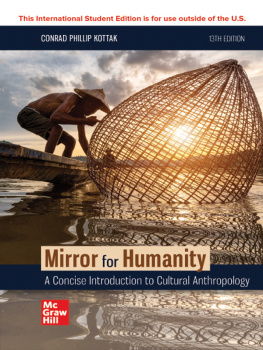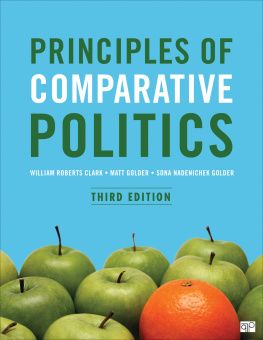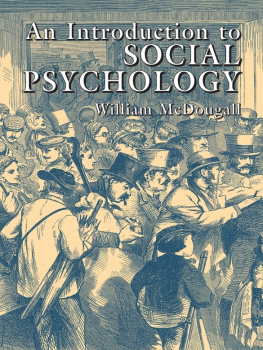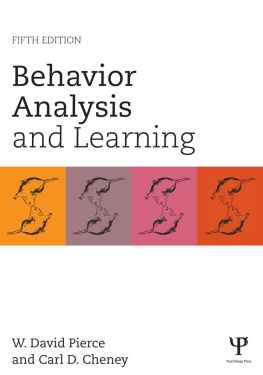First published 2009 by Left Coast Press, Inc.
Published 2016 by Routledge
2 Park Square, Milton Park, Abingdon, Oxon OX14 4RN
711 Third Avenue, New York, NY 10017, USA
Routledge is an imprint of the Taylor & Francis Group, an informa business
Copyright 2009 Taylor & Francis
First edition 1990 published by Wadsworth, Inc. under ISBN 0-534-12498-4.
All rights reserved. No part of this book may be reprinted or reproduced or utilised in any form or by any electronic, mechanical, or other means, now known or hereafter invented, including photocopying and recording, or in any information storage or retrieval system, without permission in writing from the publishers.
Notice:
Product or corporate names may be trademarks or registered trademarks, and are used only for identification and explanation without intent to infringe.
Library of Congress Cataloguing-in-Publication Data
Kottak, Conrad Phillip.
Prime-Time Society: an anthropological analysis of television and culture / Conrad Phillip Kottak.
p. cm. (Wadsworth modern anthropology library)
Includes bibliographical references
ISBN 978-1-59874-369-2
1. Television broadcastingsocial aspects. I. Title. II. Title: Anthropological analysis of television and culture. III. Title: Television and culture. IV. Series
PN1992.6.I67 1990
302. 23'45dc20
89-37664
CIP
ISBN 978-1-59874-369-2 paperback
For professional anthropologists it is commonplace to say that anthropological knowledge (or at least conventional anthropological knowledge) begins with the exotic and ends up transforming what was strange, irrational, or simply bizarre into something intelligible and humanly acceptable. This involves a necessary demystification and clarification of the connections between apparent social discontinuities that are often perceived as irreconcilable. It is precisely this gap between the exotic and the familiar that gives rise to what we have traditionally called, perhaps a bit pompously, anthropological theory.
It could be said that this has been the characteristic pattern of all the classic anthropological adventures or journeys. In those cases, the researcher must leave his or her own society in order to visit strange lands and experience exotic customs, which, after considerable time and effort, he or she finally manages to discern and understand . The direction of this journey, however, is outward and downward. One meets the primitives, seeks out savages, wants to live with Indians, wishes to interpret customs of traditional societies and underdeveloped peoples. Our subject matter has been the systematic study of those who are far away, of those less rich and modern than we are. We have been trapped in a chalk circle inscribed by restricted anthropological knowledge and concept, by a formula that dictates a process in which the other ends up being like us. Then, after the journey and the essays, the other, whether Trobriander or Balinese, remains there, while we are here.
That, it seems to me, is the process that Conrad Kottak resolutely refuses to follow in his pioneering work Prime- Time Society . In fact, what he does here is just the opposite. He has decided to take as his object of study television, and with it our own system of representations, and to examine that system through an anthropological lens. Reversing the usual course, he adds a necessary other side to the conventional mode of anthropological understanding. The most interesting aspect of this book is precisely the transformation of the familiar into the exotic. Kottak leads us to distance ourselves from the ordinary world in which we live and that we take as much for granted, and interpret with as little imagination, as the air we breathe. In studying television in Brazil, Kottak takes a different approach, a risky and original one. He does not adopt the simplistic view that in Brazil the universe of television slavishly mimics a cosmopolitan and universalistic pattern that typifies our system and that television leads, therefore, to the dissolution of cultural differences. Perhaps as a result of knowing from personal experience and academic training that cultural realities are similar on some levels and different on others, Kottak, with intelligent suspicion, reverses the usual course and shows how television itself constitutes, in the case of Brazilian society, a landscape of its own, one that is expressive of the dramas and values of the society in which it functions.
As a result, this book is more than a study based on empirical research. It is also a true epistemological experiment of a sort that few have the courage to attempt. Critically observing the modern anthropological scene, one quickly discovers a kind of fear of the observers own cultural universe. When we enter the picture, the old anthropological taboo immediately rises in confrontation. Thus, the people who have culture, rituals, and values are the Nuer, the Chinese, and the Brazilians. Wethat is, North Americans and Englishhave customs, ceremonies, and social sciences. We should only speak of the otheror of those among and before us who have spoken of the other. We are not supposed to adopt the opposite procedure of speaking of ourselves as others on the basis of observations of parts of our own system in which we can discern something concrete and systematic. If we choose to convert the familiar into the exotic, we adopt an epistemological option that takes us to the circus rather than to the opera, to the movies rather than to the theaterindeed, to our own living rooms, where our TV sets reign, rather than to the writers that history and the critics have consecrated. Its a matter of taking more seriously, as Prime-Time Society does, that we, too, have a culture. We also live in a society filled with beliefs, rituals, and preconceptions. By following such a path, this book leads us away from being American, transforming us into Nacirema ( American spelled backward, as in Horace Miners famous article Body Ritual Among the Nacirema).
This is not an easy process. As a systematic observer of the social life of the United States, I have noted the instantaneous respectability of discourse that cites the Bible, Shakespeare, or some illustrious German or French philosopher. Authors from other worlds do not exist. It remains true, as Clifford Geertz teaches, that anthropological understanding is a dialog between the most particular of particulars and the most universal of universals. But we also know that the universal is socially constructed. Still, we have paid too much attention to singularities and to the exoticism of particulars. We have taken these to be the exclusive object of anthropology. Whether or not one studies primitives has distinguished anthropologists from other social scientists.
Why have we proceeded in this way? This book helps us answer this question through its subject matter and approach. First, there is a tradition of going outward and not inward as Prime-Time Society does. Next, there is a world system marked by specific ideological values, based on a Puritan-Calvinist individualism that piously affirms the rule of the individual as an axiomatic moral entity. This view, as we learn from the work of Louis Dumont, has consequences. One of them is myopia in viewing value systems in which the whole dominates, in interpreting institutions in which hierarchy and relationships are primary. From this comes a tendency to see everything as dissolving into a cloud lacking form and depth, instead of trying to discover new discontinuities and differences that appear in the world and, in a way, reconstitute the old cultural boundaries. Or, are we really supposed to believe that Arab fundamentalism is simply a matter of interpretation, or that Brazilian nationalism is only a way of writing about Brazil?








